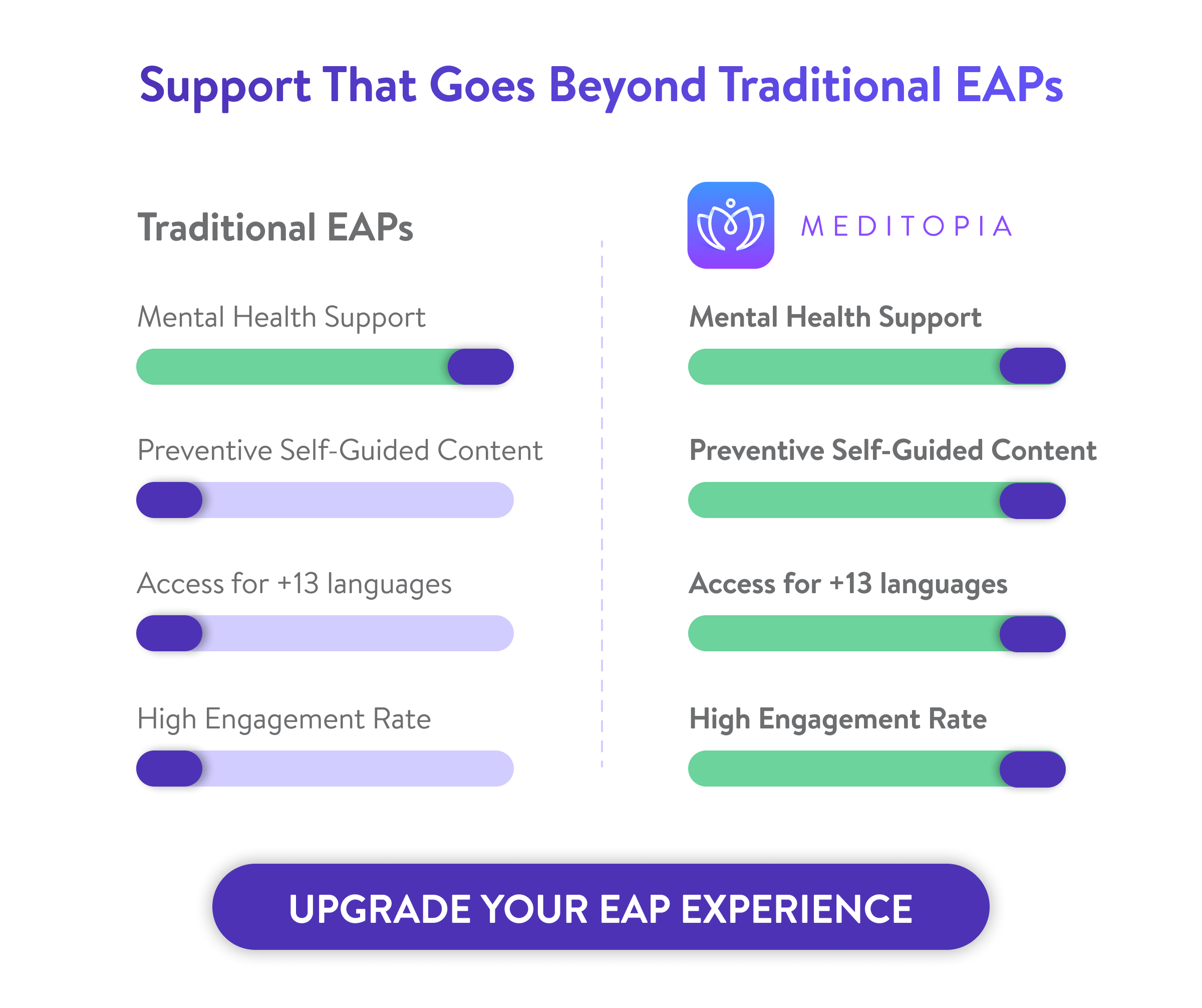Recent research shows, for example, that more than half of small business owners reported experiencing poor mental health in the past 12 months [1]. When the wellbeing of owners and their teams is compromised, the ripple-effects touch performance, retention, and business resilience. Let's explore why mental health for small business owners can change the game.
Why Mental Health Support Matters for Small Businesses
For small and micro-businesses, the interplay between business performance and personal wellbeing is particularly tight.
- Owners often carry multiple roles (strategy, operations, finances, HR, customer service) and long hours can become the norm.
- For example, Australian statistics show that one-third of business owners experienced moderate or higher psychological distress, and 40% had experienced a diagnosed mental health condition in the past 12 months [2].
- Similarly, UK research found that 80% of small-business owners said they had suffered from poor mental health at some point.
- In small teams, every individual’s stress or disengagement has an immediate impact on productivity, client satisfaction, and collaboration.
- One in five SME employees has taken time off work due to mental health issues, often without structured support or HR guidance.
- Most small companies don’t have a full HR or wellbeing department, which means problems like burnout or anxiety can go unnoticed or untreated.
- Teams that feel safe discussing mental health are more loyal and engaged, reducing turnover and preserving hard-won expertise [3].
- According to a 2023 CIPD study, wellbeing initiatives in small organisations can cut sickness absence and significantly boost motivation [4].
Common Mental Health Challenges in Small Teams
Small teams and startups face a number of distinct pressures that make small business owners’ mental health and team wellbeing particularly vulnerable:
- Overworking, long hours and lack of time off
- Financial stress and uncertainty (cash-flow, market disruption)
- Limited HR or wellbeing resources (few or no dedicated staff, small budget)
- Isolation, especially for remote, solo or micro-business setups
- Blurred boundaries between personal life and business life
- Pressure on owners/managers to “carry” the business and the team
- Stigma or reluctance to raise mental-health issues in small-company culture
- For example, research found that among UK micro-business owners, 51 % reported general stress, 30 % anxiety or depression, overworking (30 % working more than 46 hrs/week) and limited time off [5].
If your organization has some or many of these challenges, it's okay. What matters is to spot them and act accordingly.

Affordable Ways to Support Mental Health at Work
One of the biggest questions for small business leaders: how to implement meaningful support without a large budget or HR team. Here are practical, cost-effective strategies:
- Cultivate open conversations about stress and burnout: normalise discussion, encourage managers and owners to model vulnerability.
- Offer flexibility: mental-health days, flexible schedules, short wellness breaks, micro-pauses for mindfulness or rest.
- Create “connection rituals” for hybrid or remote teams: Weekly virtual coffee chats or gratitude moments strengthen remote team mental health and isolation.
- Provide mental health literacy resources. Share short guides or training on recognizing early stress signs and promoting empathy across all levels of the organization. We can help you with this task! Our experts craft comprehensive and practical materials to guide your team's through their wellbeing journey.
- Introduce mindfulness or short wellness breaks: e.g., guided breathing, five-minute check-ins, peer-led sessions. These contribute to entrepreneur burnout prevention. It has also been demonstrated that mindfulness for small teams can reduce stress and increase collaboration.
- Meditopia for Work has 1000+ mindfulness and self-guided resources for employees in 14 languages. Send us a message to dicuss which are your organizational challenges, and how our programs can tackle them.
- Encourage peer support: for very small businesses, forming networks, mentoring programs for work, or peer groups of owners/managers helps reduce isolation and builds resilience programmes for small business.
- Recognize small wins publicly: acknowledging effort fosters appreciation, improves morale, and combats demotivation in high-pressure phases.
- Monitor basic wellbeing metrics: pulse-surveys, quick check-in questions, or integrating simple tools into existing workflows.
Mental Health Solutions for Small Business Owners
When founders and managers are emotionally regulated, teams operate with more confidence, communication improves, and creativity flows more freely. The challenge? Traditional wellbeing services are often too expensive or time-consuming for SMEs, leaving owners without realistic options. Here's a comparison:

Choosing the Right Mental Health Partner
When small business leaders evaluate wellbeing or EAP (Employee Assistance Programme) partners, here are criteria they should prioritise:
- Affordability: Flexible pricing models suited for fewer employees; not minimum-100-employees only.
- Language Scope: This is especially important if you work in an international or hybrid company. Meditopia, for example, works in 14 languages.
- Accessibility: 24/7 support, mobile or app-based access, remote-friendly.
- Privacy & confidentiality: Small teams need assurance that users feel safe to access support. The platforms to be used must also be compelling with legal marks of the counry it will operate in.
- Scalability: The partner should be able to grow with your business, support additional users, modules or language/localisation.
- Integration & simplicity: Minimal admin burden, easy onboarding, self-serve features.
- Evidence of effectiveness: In Meditopia's case, we have an engagement rate of 45%, which is 32% highger than regular EAPs. Our studies have proven to increase positive emotions and reduce stress in only 8 weeks.
How to Introduce Mental Health Support in a Small Company
Launching a mental-health initiative in a small business doesn’t require an extensive rollout. Here’s a simple roadmap:
- Assess needs: Conduct a quick survey or informal check-in to identify key stressors (e.g., financial pressure, workload spikes, remote isolation).
- Start small: Introduce 1-2 initiatives, e.g., one mindfulness break weekly, or give owners/employees access to a digital wellbeing platform.
- Communicate clearly and regularly: Explain the purpose, normalise the idea of support, ensure owners/managers lead by example.
- Offer training or guidance: Short webinars or peer-led sessions on stress management, remote team mental health, resilience.
- Monitor & adapt: Track usage, employee sentiment or simple metrics (e.g., number of questions raised, informal feedback). Adjust based on what works.
- Scale gradually: Once buy-in is achieved, expand to more features or integrate more elements (e.g., leadership wellness, employee peer groups).
Meditopia works with many small businesses globally. Send us amessage to discuss your challenges and which of our alternatives is the most suited to tackle them.






%2008.07.36_4ffe9739.jpg)

















